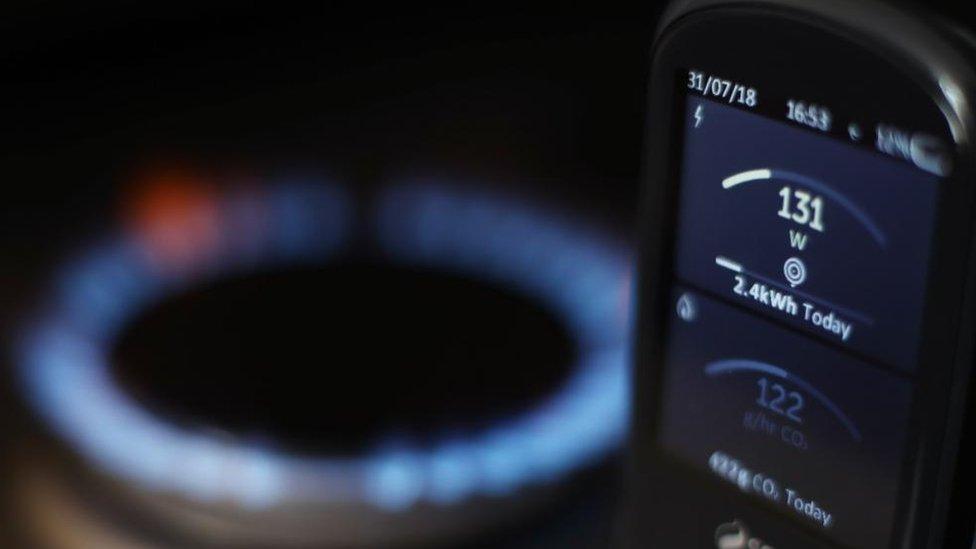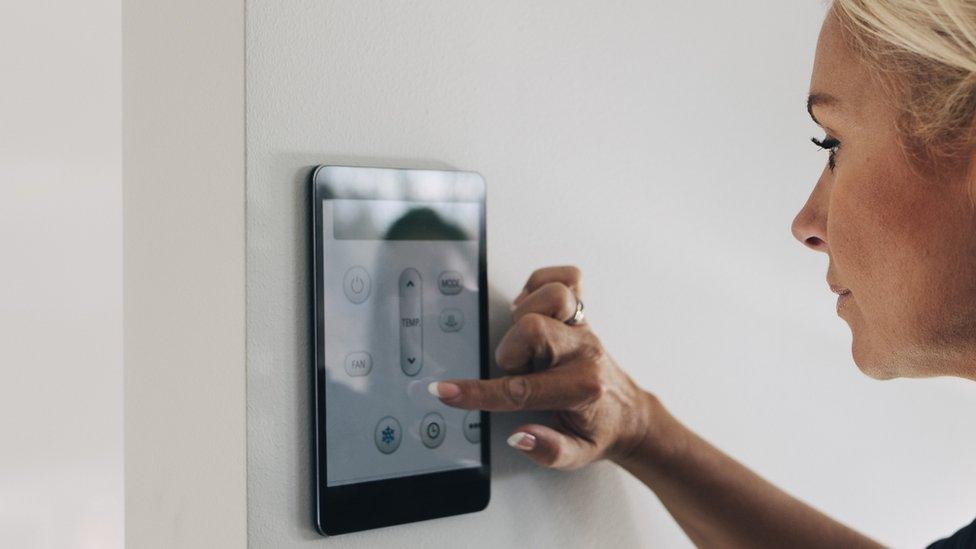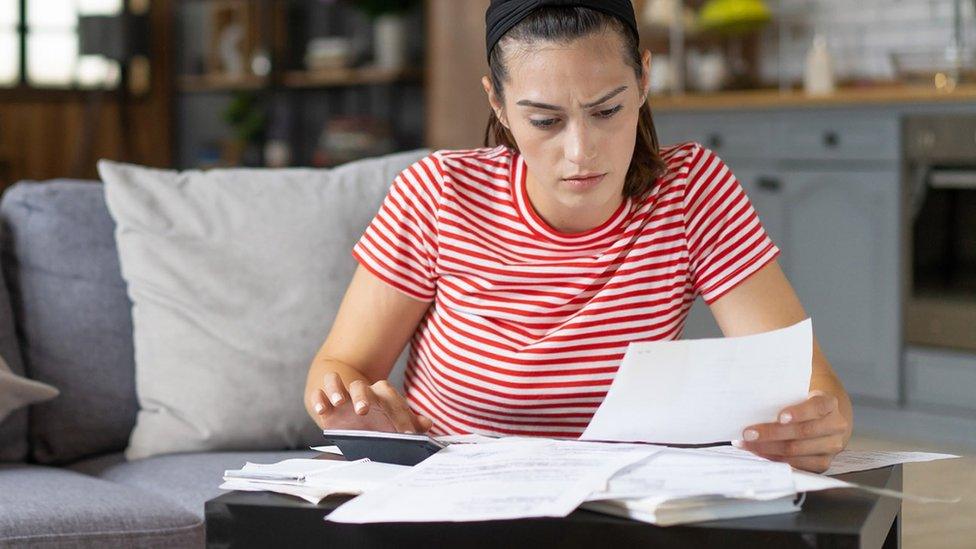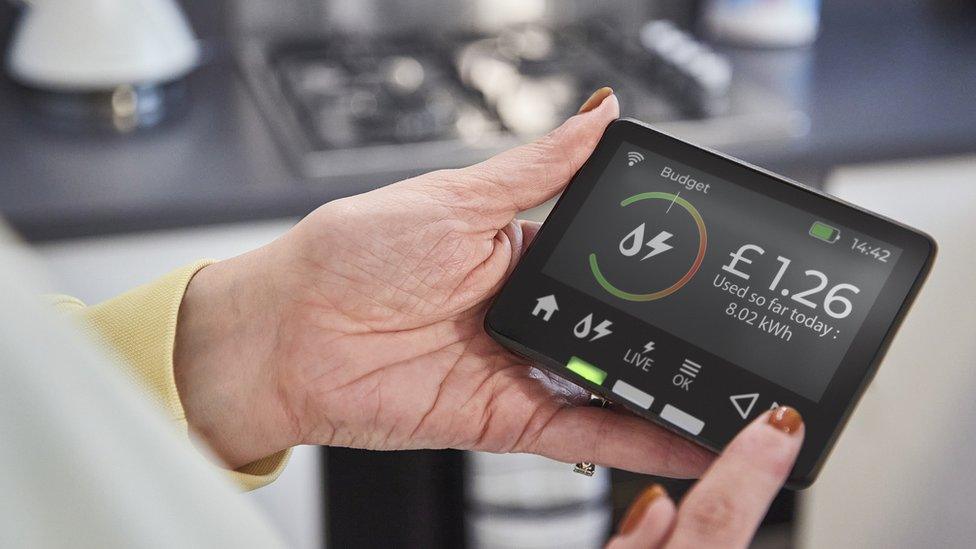Campaigners call for more energy support for vulnerable households
- Published

A coalition of 140 organisations and MPs has called on the government to consider introducing a social tariff to help with energy bills this winter.
In an open letter to Prime Minister Rishi Sunak, it said support would stop people having to face a "desperate choice... between heating and eating".
Average household energy bills are set to be 13% higher this winter than they were last year, it said.
Social tariffs are discounted packages available to low-income households.
The head of the customer arm of EDF, one of the UK's largest energy suppliers, has also voiced support for the measure.
From 1 October, the energy price cap will fall to £1,923. That figure will be down from £2,074 at present and £2,500 last winter, but will still be 50% higher than at the same point in 2021, external.
Last year, each household received £400 of support over six months, bringing the average monthly cost down to £141, but this year the government is yet to announce any equivalent support, meaning that from October the average monthly cost will be £160.
A YouGov survey for fuel poverty charity National Energy Action (NEA), found that 34% of British adults expected to struggle to afford to pay their energy bills this winter without any government support.
The open letter, signed by NEA, Citizens Advice, Age UK, and the MoneySavingExpert website amongst others, said that "short-term, targeted support" was needed to "protect the most vulnerable households in and on the edge of fuel poverty".
"These are people whose bills have become so unaffordable that they are having to make the desperate choice nobody should have to make - between heating and eating," it said.
"This is a long-term problem that requires a sustainable safety net for these people. Anything else will be a costly sticking plaster."
The letter said that a social tariff was "one of the most effective ways the government can address this enduring challenge".
In last year's Autumn Statement, external, the government pledged to "work with consumer groups and industry to consider the best approach to consumer protection from April 2024, including options such as social tariffs".
However, the measure received no mention when the government set out its plans, external for reforms to the retail energy market in July.
Plaid Cymru MP Ben Lake, who chairs the All-Party Parliamentary Group on Fuel Poverty and Energy Efficiency, said the government "cannot delay the introduction of a social tariff any longer".
"With energy debt soaring by 70% over the last three years, it's vital that low-income and vulnerable households are protected," he said.
"It's time for the government to consult on these issues so a sustainable solution can be put in place."
Separately, Philippe Commaret, managing director for customers at EDF, has pledged to ensure that some 250,000 of the company's customer households who are struggling with high costs see their standing charges - the fixed daily amount you have to pay for energy, no matter how much you use - fall to where they were before the energy crisis.
However, he said this was "not sustainable" for individual companies to do.
"The reason we are doing it is also to call on Ofgem and government to think about the way that tariffs are set up," he said.
"The reality is that the situation since last year has worsened, not only in terms of the number of customers who are indebted, but also in terms of debt per customer."
He added that "what we are seeing is that the number of customers who are struggling are massive, so it can't be a solution for just a few people".
A spokesperson for the Department for Energy Security and Net Zero said the government recognises "the cost-of-living challenges families are facing" and was providing "targeted support for the most vulnerable"
They said that "three million households expected to benefit from the £150 Warm Home Discount", while "millions of vulnerable households will receive up to £900 in further cost of living payments".
"We continue to keep all options under review for those most in need," the spokesperson said.
Related topics
- Published28 September 2023

- Published25 August 2023

- Published6 September 2023
